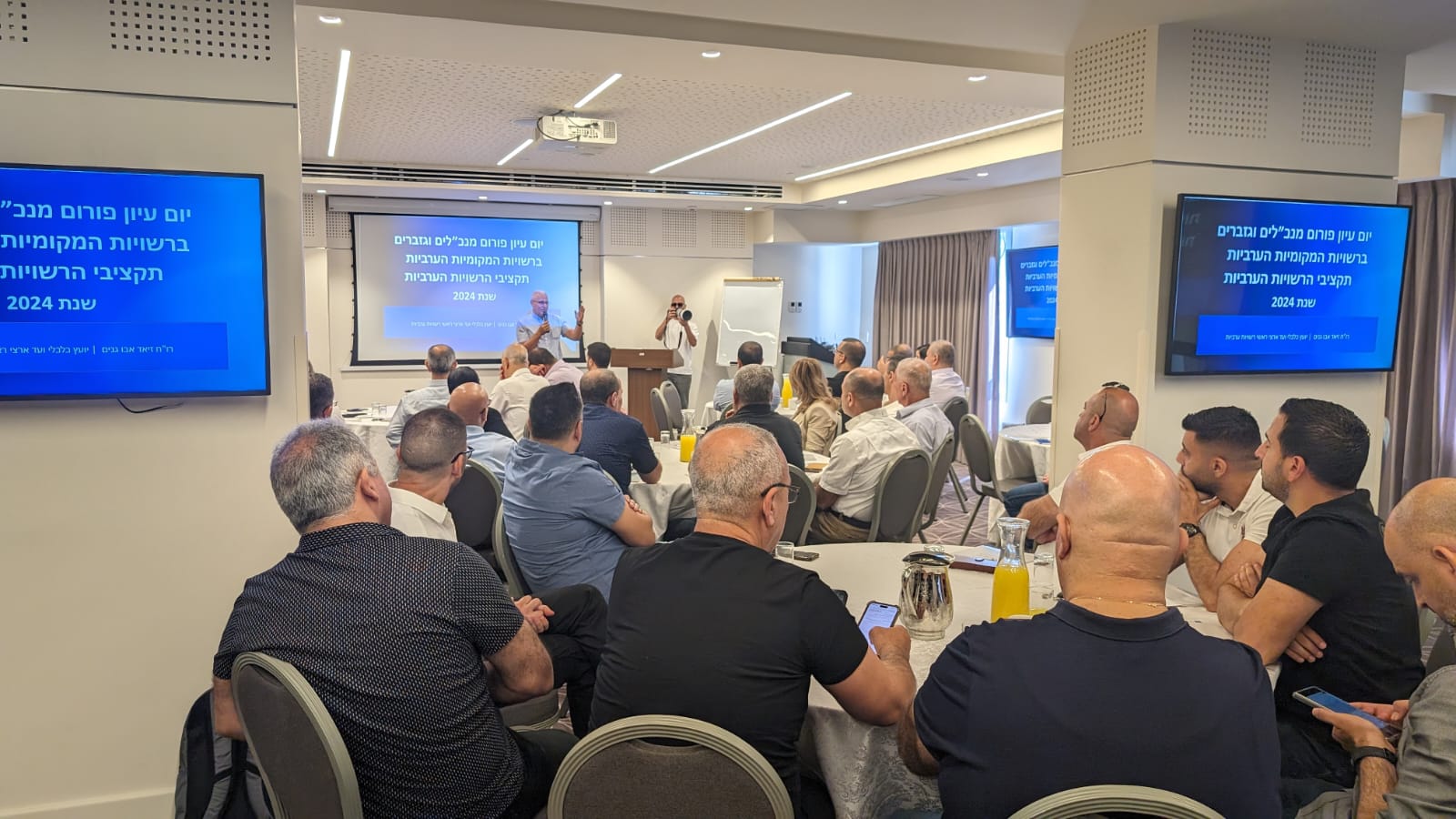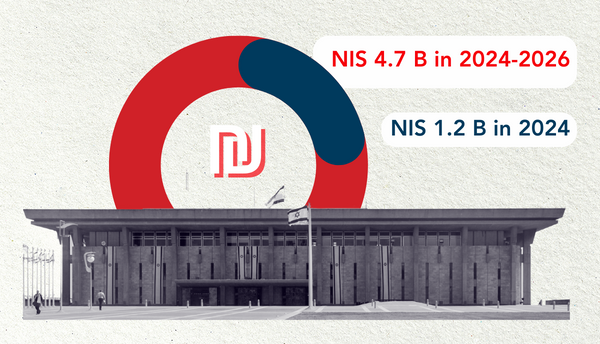2025 Israel State Budget Cuts and Arab Society
On March 25, 2025, the Israeli Knesset approved a state budget of NIS 619.6 B for 2025, reflecting a 20.6% increase over the original 2024 budget. The new budget includes significant reductions in funding designated for socio-economic development in Arab society. According to estimates by the Mossawa Center, over NIS 2 B was cut from programs targeting gaps in areas such as health, education, transportation, welfare, and housing.
These reductions follow a series of recent cuts. In January 2024, the government decided on reducing allocations across all resolutions aimed at advancing the socio-economic development of Arab citizens by 15% between 2024-2026. Earlier in March, as part of the latest budget approval, Social Equality Minister May Golan requested an additional NIS 66 M budget transfer from Arab society-focused programs to the general spending budget of the Ministry for Social Equality — a move that is still pending approval by the Knesset Finance Committee.
Scope of the Cuts
The total allocation for Arab society in 2025 comprises less than 4% of the state budget. According to the report from the Mossawa Center – The Advocacy Center for Arab Citizens of Israel, the approved cuts affect a range of development frameworks:
- Government Resolution 550 will see a reduction of NIS 812 M.
- Education budgets will see the most significant reduction, with NIS 403 M cut from the Ministry of Education’s allocation for Arab society.
- NIS 208 M will be cut from Government Resolution 1279, which focuses on Bedouin development in the Negev.
- Government Resolution 1834 form mixed cities will be reduced by NIS 14.6 M.
- Jiser a-Zarqa, the only Arab town on Israel’s coast, will lose NIS 8 M earmarked for local development.
Additional reductions include:
- NIS 120 M from public transportation projects
- NIS 84.7 M from the Ministry of Housing’s targeted programs
- NIS 76.4 M from balancing grants for local authorities.
Several other ministries with direct relevance to youth development, employment, and welfare will also experience cutbacks:
- NIS 43.6 M from the Ministry of Labor
- NIS 37 M from the Ministry of Culture and Sports
- NIS 34.8 M from the Ministry of Economy
- NIS 25.1 M from the Ministry of Social Affairs
- NIS 2.5 M from the digital literacy initiative.
Ilan Amit, Co-CEO of AJEEC-NISPED, comments in his op-ed: “This massive budget cut is expected to broadly damage educational and vocational programs aimed at narrowing severe societal gaps, further weaken the fight against crime and violence, and deepen the crisis of trust between Arab society and the State of Israel.”
Public Response
The Knesset’s budget approval has drawn strong criticism from Arab local leaders, economists, and civil society organizations, who argue that the new allocations fall short of addressing long-standing disparities affecting Arab citizens of Israel. The significant budget cut comes amid rising homicide rates, high unemployment, and poverty.
“The budget treated every sector as if the country were at war and accounted for the needs of all minority groups—except one: the Arab community, which has faced chronic budget shortfalls for years,” said Kafr Qara Mayor, Att. Faras Badhi. He warned that the cuts will further strain local authorities and deepen the crime crisis in Arab society.
Public concern deepened in March after reports emerged that Shin Bet Director Ronen Bar had intervened with the Ministry for Social Equality to release certain development funds under the framework of national emergency preparedness. This move reinforced growing perceptions that funding decisions for Arab communities are increasingly tied to security considerations. Ameer Bisharat, CEO of the National Committee of Arab Local Councils in Israel, cautioned that such linkages risk shifting the focus of development policy away from civil rights for all citizens and toward security-based criteria. Economist Nabil Armaly stated that investing in Arab society is essential for Israel’s broader economic resilience.
Many also view the significant cuts to Arab-focused programs as a reflection of shifting policy priorities. “These cuts are not isolated—they’re part of a broader policy aimed at weakening Arab society,” said Bisharat. “This is the time for civil society, local leadership, and the broader public to unite and demand the resources our communities need to thrive.”

How Can We Help?
Do you need support integrating these resources and issues into your philanthropic, communal, or Israel education work? Reach out for consultations, connections to experts, program support, training, or to plan your next event or mission. If you’ve used our resources, tell us about your experience!

